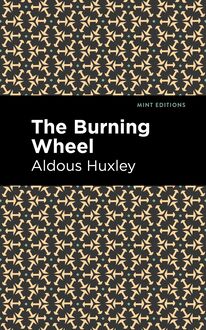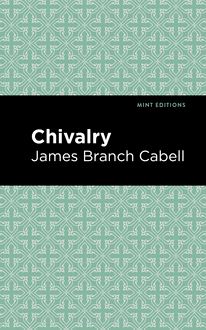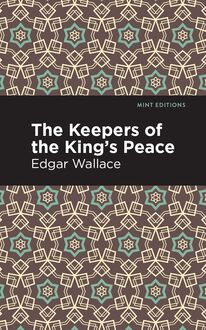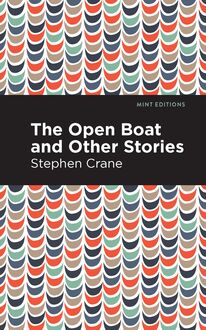-
 Univers
Univers
-
 Ebooks
Ebooks
-
 Livres audio
Livres audio
-
 Presse
Presse
-
 Podcasts
Podcasts
-
 BD
BD
-
 Documents
Documents
-
- Cours
- Révisions
- Ressources pédagogiques
- Sciences de l’éducation
- Manuels scolaires
- Langues
- Travaux de classe
- Annales de BEP
- Etudes supérieures
- Maternelle et primaire
- Fiches de lecture
- Orientation scolaire
- Méthodologie
- Corrigés de devoir
- Annales d’examens et concours
- Annales du bac
- Annales du brevet
- Rapports de stage
La lecture à portée de main
Vous pourrez modifier la taille du texte de cet ouvrage
Découvre YouScribe en t'inscrivant gratuitement
Je m'inscrisDécouvre YouScribe en t'inscrivant gratuitement
Je m'inscrisEn savoir plus
Vous pourrez modifier la taille du texte de cet ouvrage
En savoir plus

Description
From the coast of West Africa to the streets of Europe, the peculiar Augustus “Bones” Tibbetts is unknowingly pulled into various financial plots and schemes. As part of Edgar Wallace's Sanders of the River collection, Bones in London follows the endearing military man as he haplessly juggles business and politics.
Augustus Tibbetts, also known as Bones, has left the coast of Africa for the bustling streets of England. As the new managing director of Schemes Ltd., he suddenly finds himself at the center of multiple mishaps. Along with his trusted assistant Miss Winfield, the duo encounters questionable characters and unexpected ploys. Despite the circumstance, Bones stays true to his nature and finds a way to come out on top.
Wallace uses the affable protagonist to highlight corrupt business practices within London. It is an issue that affects both upper and lower-class citizens making it relatable to a broader audience. With Bones’ unique perspective and eccentric voice, he balances the dark tone with genuine humor and heart.
Bones in London is one of many entries in the author's vast catalog, which includes Bones (1915), Lieutenant Bones (1918), and Bones of the River (1923). Each book is a serialized version of short stories originally published in The Weekly Tale-Teller, The Windsor Magazine, and The 20-Story Magazine. For more than a century, these classic titles have delivered mystery and intrigue for readers of all ages. Wallace’s work was integral to the creation of contemporary crime drama.
With an eye-catching new cover, and professionally typeset manuscript, this edition of Bones in London is both modern and readable.
Sujets
Informations
| Publié par | Mint Editions |
| Date de parution | 29 novembre 2020 |
| Nombre de lectures | 0 |
| EAN13 | 9781513266848 |
| Langue | English |
Informations légales : prix de location à la page 0,0450€. Cette information est donnée uniquement à titre indicatif conformément à la législation en vigueur.
Extrait
Bones in London
Edgar Wallace
Bones in London was first published in 1915.
This edition published by Mint Editions 2020.
ISBN 9781513266404 | E-ISBN 9781513266848
Published by Mint Editions®
minteditionbooks.com
Publishing Director: Jennifer Newens
Project Manager: Gabrielle Maudiere
Design & Production: Rachel Lopez Metzger
Typesetting: Westchester Publishing Services
C ONTENTS 1. B ONES AND B IG B USINESS 2. H IDDEN T REASURE 3. B ONES AND THE W HARFINGERS 4. T HE P LOVER L IGHT C AR 5. A C INEMA P ICTURE 6. A D EAL IN J UTE 7. D ETECTIVE B ONES 8. A C OMPETENT J UDGE OF P OETRY 9. T HE L AMP T HAT N EVER W ENT O UT 10. T HE B RANCH L INE 11. A S TUDENT OF M EN 12. B ONES H ITS B ACK
Chapter 1
B ONES AND B IG B USINESS
T here was a slump in the shipping market, and men who were otherwise decent citizens wailed for one hour of glorious war, when Kenyon Line Deferred had stood at 88½, and even so poor an organization as Siddons Steam Packets Line had been marketable at 3⅜.
Two bareheaded men came down the busy street, their hands thrust into their trousers pockets, their sleek, well-oiled heads bent in dejection.
No word they spoke, keeping step with the stern precision of soldiers. Together they wheeled through the open doors of the Commercial Trust Building, together they left-turned into the elevator, and simultaneously raised their heads to examine its roof, as though in its panelled ceiling was concealed some Delphic oracle who would answer the riddle which circumstances had set them.
They dropped their heads together and stood with sad eyes, regarding the attendant’s leisurely unlatching of the gate. They slipped forth and walked in single file to a suite of offices inscribed “Pole Brothers, Brokers,” and, beneath, “The United Merchant Shippers’ Corporation,” and passed through a door which, in addition to this declaration, bore the footnote “Private.”
Here the file divided, one going to one side of a vast pedestal desk and one to the other. Still with their hands pushed deep into their pockets, they sank, almost as at a word of command, each into his cushioned chair, and stared at one another across the table.
They were stout young men of the middle thirties, clean-shaven and ruddy. They had served their country in the late War, and had made many sacrifices to the common cause. One had worn uniform and one had not. Joe had occupied some mysterious office which permitted and, indeed, enjoined upon him the wearing of the insignia of captain, but had forbidden him to leave his native land. The other had earned a little decoration with a very big title as a buyer of boots for Allied nations. Both had subscribed largely to War Stock, and a reminder of their devotion to the cause of liberty was placed to their credit every half-year.
But for these, war, with its horrific incidents, its late hours, its midnight railway journeys by trains on which sleeping berths could not be had for love or money, its food cards and statements of excess profits, was past. The present held its tragedy so poignant as to overshadow that breathless terrifying moment when peace had come and found the firm with the sale of the Fairy Line of cargo steamers uncompleted, contracts unsigned, and shipping stock which had lived light-headedly in the airy spaces, falling deflated on the floor of the house.
The Fairy Line was not a large line. It was, in truth, a small line. It might have been purchased for two hundred thousand pounds, and nearly was. To-day it might be acquired for one hundred and fifty thousand pounds, and yet it wasn’t.
“Joe,” said the senior Mr. Pole, in a voice that came from his varnished boots, “we’ve got to do something with Fairies.”
“Curse this War!” said Joe in cold-blooded even tones. “Curse the Kaiser! A weak-kneed devil who might at least have stuck to it for another month! Curse him for making America build ships, curse him for ____ ”
“Joe,” said the stout young man on the other side of the table, shaking his head sadly, “it is no use cursing, Joe. We knew that they were building ships, but the business looked good to me. If Turkey hadn’t turned up her toes and released all that shipping ____ ”
“Curse Turkey!” said the other, with great calmness. “Curse the Sultan and Enver and Taalat, curse Bulgaria and Ferdinand ____ ”
“Put in one for the Bolsheviks, Joe,” said his brother urgently, “and I reckon that gets the lot in trouble. Don’t start on Austria, or we’ll find ourselves cursing the Jugo-Slavs.”
He sighed deeply, pursed his lips, and looked at his writing-pad intently.
Joe and Fred Pole had many faults, which they freely admitted, such as their generosity, their reckless kindness of heart, their willingness to do their worst enemies a good turn, and the like. They had others which they never admitted, but which were none the less patent to their prejudiced contemporaries.
But they had virtues which were admirable. They were, for example, absolutely loyal to one another, and were constant in their mutual admiration and help. If Joe made a bad deal, Fred never rested until he had balanced things against the beneficiary. If Fred in a weak moment paid a higher price to the vendor of a property than he, as promoter, could afford, it was Joe who took the smug vendor out to dinner and, by persuasion, argument, and the frank expression of his liking for the unfortunate man, tore away a portion of his ill-gotten gains.
“I suppose,” said Joe, concluding his minatory exercises, and reaching for a cigar from the silver box which stood on the table midway between the two, “I suppose we couldn’t hold Billing to his contract. Have you seen Cole about it, Fred?”
The other nodded slowly.
“Cole says that there is no contract. Billing offered to buy the ships, and meant to buy them, undoubtedly; but Cole says that if you took Billing into court, the judge would chuck his pen in your eye.”
“Would he now?” said Joe, one of whose faults was that he took things literally. “But perhaps if you took Billing out to dinner, Fred ____ ”
“He’s a vegetarian, Joe”—he reached in his turn for a cigar, snipped the end and lit it—“and he’s deaf. No, we’ve got to find a sucker, Joe. I can sell the Fairy May and the Fairy Belle : they’re little boats, and are worth money in the open market. I can sell the wharfage and offices and the goodwill ____ ”
“What’s the goodwill worth, Fred?”
“About fivepence net,” said the gloomy Fred. “I can sell all these, but it is the Fairy Mary and the Fairy Tilda that’s breaking my heart. And yet, Joe, there ain’t two ships of their tonnage to be bought on the market. If you wanted two ships of the same size and weight, you couldn’t buy ’em for a million—no, you couldn’t. I guess they must be bad ships, Joe.”
Joe had already guessed that.
“I offered ’em to Saddler, of the White Anchor,” Fred went on, “and he said that if he ever started collecting curios he’d remember me. Then I tried to sell ’em to the Coastal Cargo Line—the very ships for the Newcastle and Thames river trade—and he said he couldn’t think of it now that the submarine season was over. Then I offered ’em to young Topping, who thinks of running a line to the West Coast, but he said that he didn’t believe in Fairies or Santa Claus or any of that stuff.”
There was silence.
“Who named ’em Fairy Mary and Fairy Tilda ?” asked Joe curiously.
“Don’t let’s speak ill of the dead,” begged Fred; “the man who had ’em built is no longer with us, Joe. They say that joy doesn’t kill, but that’s a lie, Joe. He died two days after we took ’em over, and left all his money—all our money—to a nephew.”
“I didn’t know that,” said Joe, sitting up.
“I didn’t know it myself till the other day, when I took the deed of sale down to Cole to see if there wasn’t a flaw in it somewhere. I’ve wired him.”
“Who—Cole?”
“No, the young nephew. If we could only ____ ”
He did not complete his sentence, but there was a common emotion and understanding in the two pairs of eyes that met.
“Who is he—anybody?” asked Joe vaguely.
Fred broke off the ash of his cigar and nodded.
“Anybody worth half a million is somebody, Joe,” he said seriously. “This young fellow was in the Army. He’s out of it now, running a business in the City—‘Schemes, Ltd.,’ he calls it. Lots of people know him—shipping people on the Coast. He’s got a horrible nickname.”
“What’s that, Fred?”
“Bones,” said Fred, in tones sufficiently sepulchral to be appropriate, “and, Joe, he’s one of those bones I want to pick.”
There was another office in that great and sorrowful City. It was perhaps less of an office than a boudoir, for it had been furnished on the higher plan by a celebrated firm of furnishers and decorators, whose advertisements in the more exclusive publications consisted of a set of royal arms, a photograph of a Queen Anne chair, and the bold surname of the firm. It was furnished with such exquisite taste that you could neither blame nor praise the disposition of a couch or the set of a purple curtain.
The oxydized silver grate, the Persian carpets, the rosewood desk, with its Venetian glass flower vase, were all in harmony with the panelled walls, the gentlemanly clock which ticked sedately on the Adam mantelpiece, the Sheraton chairs, the silver—or apparently so—wall sconces, the delicate electrolier with its ballet skirts of purple silk.
All these things were evidence of the careful upbringing and artistic yearnings of the young man who “blended” for the eminent firm of Messrs. Worrows, By Appointment to the King of Smyrna, His Majesty the Emperor ____ (the blank stands for an exalted name which had been painted out by the patriotic management of Worrows), and divers other royalties.
The young man who sat in the exquisite chair, with his boots elevated to and resting upon the olive-green leather of the rosewood writing-table, had long since grown familiar with the magnificence in which he moved and had
-
 Univers
Univers
-
 Ebooks
Ebooks
-
 Livres audio
Livres audio
-
 Presse
Presse
-
 Podcasts
Podcasts
-
 BD
BD
-
 Documents
Documents
-
Jeunesse
-
Littérature
-
Ressources professionnelles
-
Santé et bien-être
-
Savoirs
-
Education
-
Loisirs et hobbies
-
Art, musique et cinéma
-
Actualité et débat de société
-
Jeunesse
-
Littérature
-
Ressources professionnelles
-
Santé et bien-être
-
Savoirs
-
Education
-
Loisirs et hobbies
-
Art, musique et cinéma
-
Actualité et débat de société
-
Actualités
-
Lifestyle
-
Presse jeunesse
-
Presse professionnelle
-
Pratique
-
Presse sportive
-
Presse internationale
-
Culture & Médias
-
Action et Aventures
-
Science-fiction et Fantasy
-
Société
-
Jeunesse
-
Littérature
-
Ressources professionnelles
-
Santé et bien-être
-
Savoirs
-
Education
-
Loisirs et hobbies
-
Art, musique et cinéma
-
Actualité et débat de société
- Cours
- Révisions
- Ressources pédagogiques
- Sciences de l’éducation
- Manuels scolaires
- Langues
- Travaux de classe
- Annales de BEP
- Etudes supérieures
- Maternelle et primaire
- Fiches de lecture
- Orientation scolaire
- Méthodologie
- Corrigés de devoir
- Annales d’examens et concours
- Annales du bac
- Annales du brevet
- Rapports de stage




















